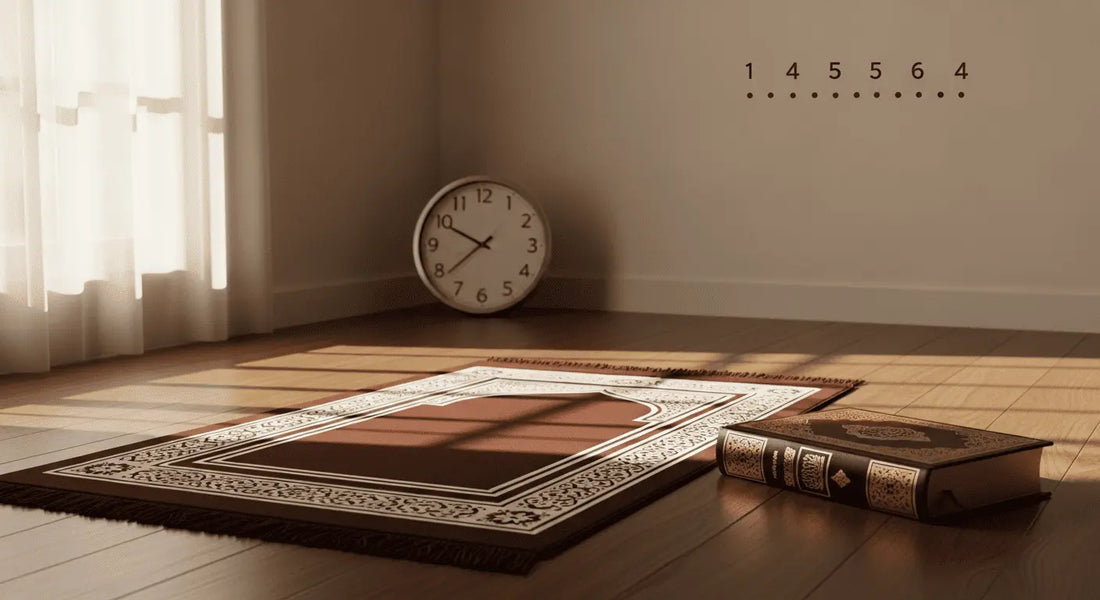
How to Perform the Five Daily Prayers: Step-by-Step Guide
Share
Introduction – The Importance of Salah in Islam
Prayer (salah) is the heartbeat of a Muslim’s daily routine and the second pillar of Islam. It keeps believers spiritually connected to Allah throughout the day and establishes discipline in every aspect of life.
Salah as the Second Pillar of Islam
After the shahadah (declaration of faith), salah is the foundation of a Muslim’s practice. It is the first deed believers will be asked about on the Day of Judgment.
Qur’anic and Hadith References About Prayer
Allah says in the Qur’an: “Indeed, prayer has been decreed upon the believers a decree of specified times.” (Surah An-Nisa, 4:103).
Prophet Muhammad ﷺ also said: “The covenant between us and them is prayer; whoever abandons it has disbelieved.” (Tirmidhi).
Why Learning Proper Prayer Steps Is Essential
Knowing how to perform the five daily prayers step by step ensures that your salah is valid and accepted. For beginners, learning the correct positions, recitations, and sequence brings clarity and khushu (focus).
What Are the Five Daily Prayers in Islam?
Muslims pray at specific times of the day:

Fajr – The Early Morning Prayer
Performed before sunrise, consisting of 2 rak‘ahs.
Dhuhr – The Midday Prayer
Prayed after the sun passes its zenith, 4 rak‘ahs.
Asr – The Afternoon Prayer
Late afternoon prayer, 4 rak‘ahs.
Maghrib – The Sunset Prayer
Immediately after sunset, 3 rak‘ahs.
Isha – The Night Prayer
After twilight, 4 rak‘ahs.
For accurate prayer timings, check IslamicFinder.
Preparing for Prayer (Pre-Salah Essentials)
Before standing in front of Allah, a Muslim prepares physically and spiritually.
Purification (Wudu and Ghusl)
Performing wudu (ablution) is mandatory before every salah. In cases of major impurity, a full ghusl (ritual bath) is required.
Clean Clothing and Modest Attire
Clothes should cover the awrah (modesty requirements) and be free from impurities.
Facing the Qiblah
Prayer must be directed towards the Kaaba in Makkah.
Correct Intention (Niyyah)
Make a sincere intention in your heart before starting the salah.
Step-by-Step Guide to Performing Salah
Here is a step-by-step salah guide (ideal for featured snippet use):

- Make Intention (Niyyah) – Silently intend which prayer you are performing.
- Opening Takbir (Takbiratul Ihram) – Raise your hands and say Allahu Akbar.
- Recite Surah Al-Fatiha – Followed by another short surah or verses.
- Ruku (Bowing) – Bend with hands on knees, saying Subhana Rabbiyal Adheem.
- Rise from Ruku – Stand straight, saying Sami’Allahu liman hamidah.
- First Sujood (Prostration) – Place forehead on the ground, saying Subhana Rabbiyal A’la.
- Sitting Between Sujood – Sit briefly and supplicate.
- Second Sujood – Repeat the prostration.
- Tashahhud and Salawat – Recite the testimony and send peace upon the Prophet ﷺ.
- Ending with Salam – Turn head right then left, saying Assalamu Alaikum wa Rahmatullah.

The Number of Rak‘ahs in Each Prayer
Here’s a breakdown of obligatory rak‘ahs (units) in each salah:
|
Prayer |
Rak‘ahs |
|
Fajr |
2 |
|
Dhuhr |
4 |
|
Asr |
4 |
|
Maghrib |
3 |
|
Isha |
4 |
Common Mistakes to Avoid in Salah

- Rushing through the prayer without mindfulness.
- Improper posture in ruku or sujood.
- Losing concentration (khushu) due to distractions.
- Forgetting required recitations such as Al-Fatiha.
Tips for Improving Your Salah

Establish Consistency
Use a Muslim planner to build a habit of praying on time daily. Check out the Muslim Planner product page for tools designed to strengthen your routine.
Learn the Meanings of the Recitations
Understanding what you recite deepens your connection with Allah.
Eliminate Distractions
Silence devices and choose a quiet place for prayer.
Use a Prayer Tracker
A daily Islamic planner helps you track salah, Qur’an, and duas. See our guide: How to Be a Productive Muslim.
Conclusion – Salah as a Source of Barakah and Discipline
Performing the five daily prayers in Islam is not just an act of worship but a source of barakah and self-discipline. Regular prayer nurtures consistency, strengthens iman, and aligns your daily schedule with divine remembrance.
If you’re looking to stay consistent, explore our Muslim Prayer Planner and start building a structured routine today.
FAQs on Performing Salah
1. How long does it take to perform each of the five daily prayers?
Each prayer takes around 5–10 minutes, depending on the number of rak‘ahs and pace.
2. Can salah be performed in English if I don’t know Arabic?
No, salah must be prayed in Arabic. However, new Muslims can learn gradually while still fulfilling obligations. SeekersGuidance offers helpful resources.
3. What should I do if I forget a step in prayer?
If you miss a step or make a mistake, perform sujood al-sahw (prostration of forgetfulness) before ending the prayer. Detailed rulings can be found on IslamQA.


